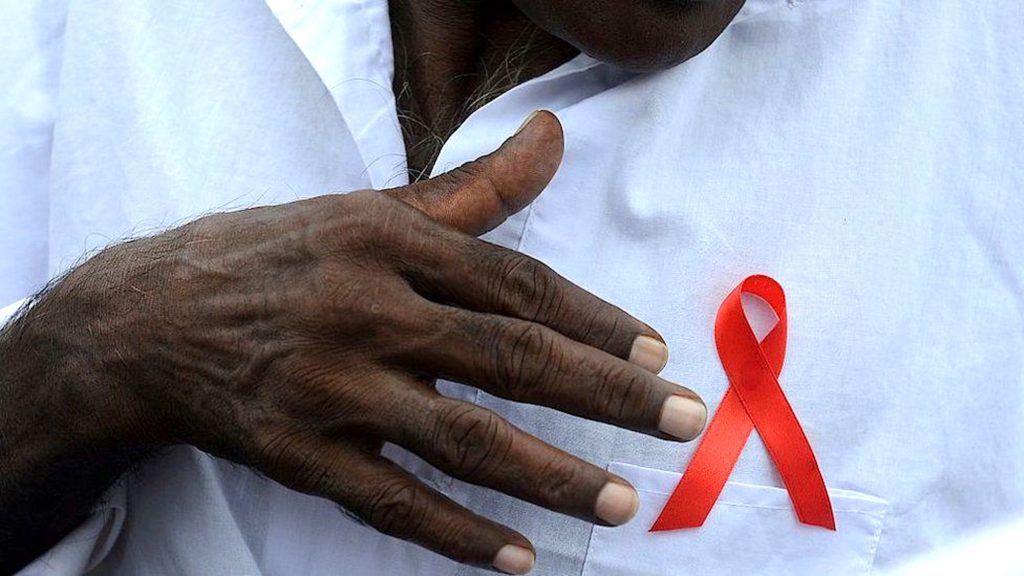Today is World AIDS Day
Photo courtesy of BBC
The HIV epidemic remains a significant global health challenge, affecting millions of people around the world. While advancements in medical treatments have improved the quality of life for those living with HIV, prevention remains a crucial aspect of combating the spread of the virus. Responsible sexual practices and comprehensive education play pivotal roles in reducing new infections and breaking the cycle of the HIV epidemic.
On October 27, 1988, the UN General Assembly officially recognized that the World Health Organization declared December 1, 1988 to be World AIDS Day. World AIDS Day has also been observed on this date each year since then.
AIDS stands for acquired immune deficiency syndrome or acquired immunodeficiency syndrome and denotes a condition that results from the damage done by HIV (human immunodeficiency virus) to the immune system. The condition was first identified in 1981 and the name AIDS was first introduced on July 27, 1982.
HIV can only be transmitted between people through direct contact of a mucous membrane or the blood stream with a bodily fluid. Hence, there has been a lot of stigma around the spread of HIV and people living with HIV and AIDS. It has been estimated that around 33 million people around the world have been infected with HIV and that around two million people die from AIDS related conditions each year.
According to National AIDS Control Programme Director, Community Specialist Dr. Janaki Vidanapathirana, 485 HIV AIDS patients have been reported up to October 31 this year. In 2021, 411 patients were identified and by 2022, the number has increased to 607, a 48 percent increase.
Cases of school children and those between the ages of 15 to 24 have increased significantly this year compared to last year; 79 cases have been reported in this age group, Dr. Vidanapathirana said.
The importance of responsible sexual practices
- Condom use and safe sex: Encouraging the consistent and correct use of condoms is a cornerstone of preventing HIV transmission. Condoms not only protect against HIV but also other sexually transmitted infections (STIs). Promoting safe sex practices through educational campaigns helps individuals make informed choices to safeguard their sexual health.
- Regular testing and communication: Regular HIV testing is essential, especially for those engaged in high risk behaviors. Open communication about sexual health between partners fosters trust and enables individuals to make informed decisions about protection and prevention. Early detection through testing allows for timely medical intervention, improving overall health outcomes.
- Pre-Exposure Prophylaxis (PrEP): The availability of Pre-Exposure Prophylaxis has revolutionized HIV prevention. Educating individuals about PrEP and its efficacy empowers them to take control of their health. Integrating PrEP into comprehensive sexual health strategies provides an additional layer of protection for those at higher risk of exposure to the virus.
Comprehensive Education
- Sexual health education in schools: Implementing comprehensive sexual health education in schools is crucial in equipping young people with the knowledge and skills to make responsible decisions. This education should cover not only the biological aspects of reproduction but also emphasize the importance of consent, communication and the prevention of STIs, including HIV.
- Destigmatizing HIV: Education plays a vital role in dispelling myths and reducing the stigma associated with HIV. Misconceptions and discriminatory attitudes can hinder prevention efforts and discourage individuals from seeking testing and treatment. Comprehensive education campaigns should focus on fostering empathy, understanding and acceptance.
- Community Outreach Programs: Engaging communities through outreach programs helps disseminate accurate information about HIV prevention and treatment. These programs can include workshops, support groups, and informational sessions to address specific cultural or societal barriers that may impede the adoption of responsible sexual practices.
- Online resources and technology: Utilizing technology and online platforms can enhance education outreach. Interactive websites, mobile apps and social media campaigns can effectively reach diverse audiences, providing easily accessible information on HIV prevention, testing and treatment.
Addressing the HIV epidemic requires a multifaceted approach that combines responsible sexual practices with comprehensive education. By promoting condom use, regular testing and the integration of preventive measures like PrEP, individuals can actively participate in protecting their sexual health. Comprehensive education, both in schools and through community outreach, is essential in creating a society that is well-informed, supportive and free from the stigma that often surrounds HIV. As we work towards a world without new HIV infections, responsible sexual practices and education will continue to be our most powerful tools in the fight against the HIV epidemic.
